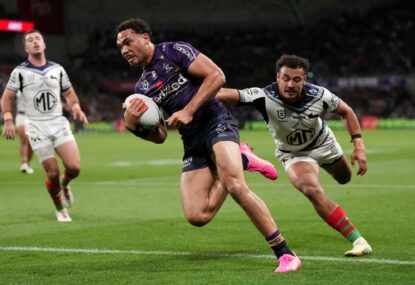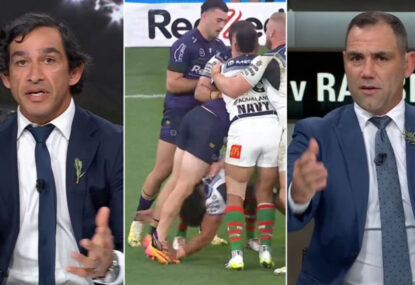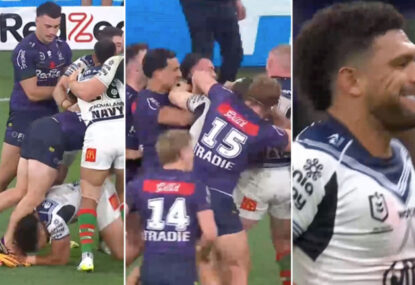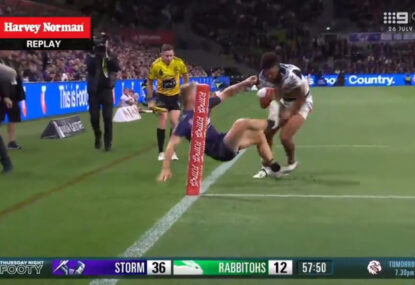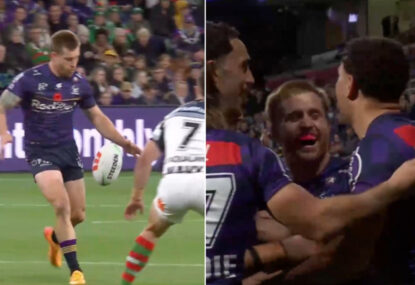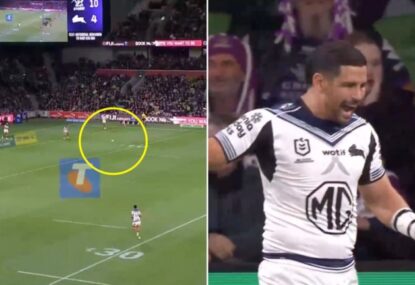There was a decent chance of an ancient rugby league record finally falling this year.
It’s a favourite stat of mine, and one I wheeled out in July after the Dragons went down to the Storm 52-30.
“No team in the 109-year history of the game in Australia has won a first-grade grand final after conceding 50 points in a match during the season.”
It comes courtesy of Fox Sports last year, so now we can update it to “No team in the 110-year history of the game in Australia…”
Now, the yarn I penned that chilly July morn was titled “Sorry, Dragons fans, that’s your season done”, but in it I also wrote off the Warriors as any chance of claiming this year’s premiership, as they had similarly had 50 put on them by Craig Bellamy’s boys.
A few weeks later, the Panthers were walloped by Brisbane 50-18 in a match that is now said to have been the final nail in the coffin for Anthony Griffin’s tenure at Penrith.
Yet those three sides all ended up playing finals footy, so there was a 37.5 per cent chance of rugby league’s ’50 and out’ rule finally being put to bed.
Well, mathematically speaking.
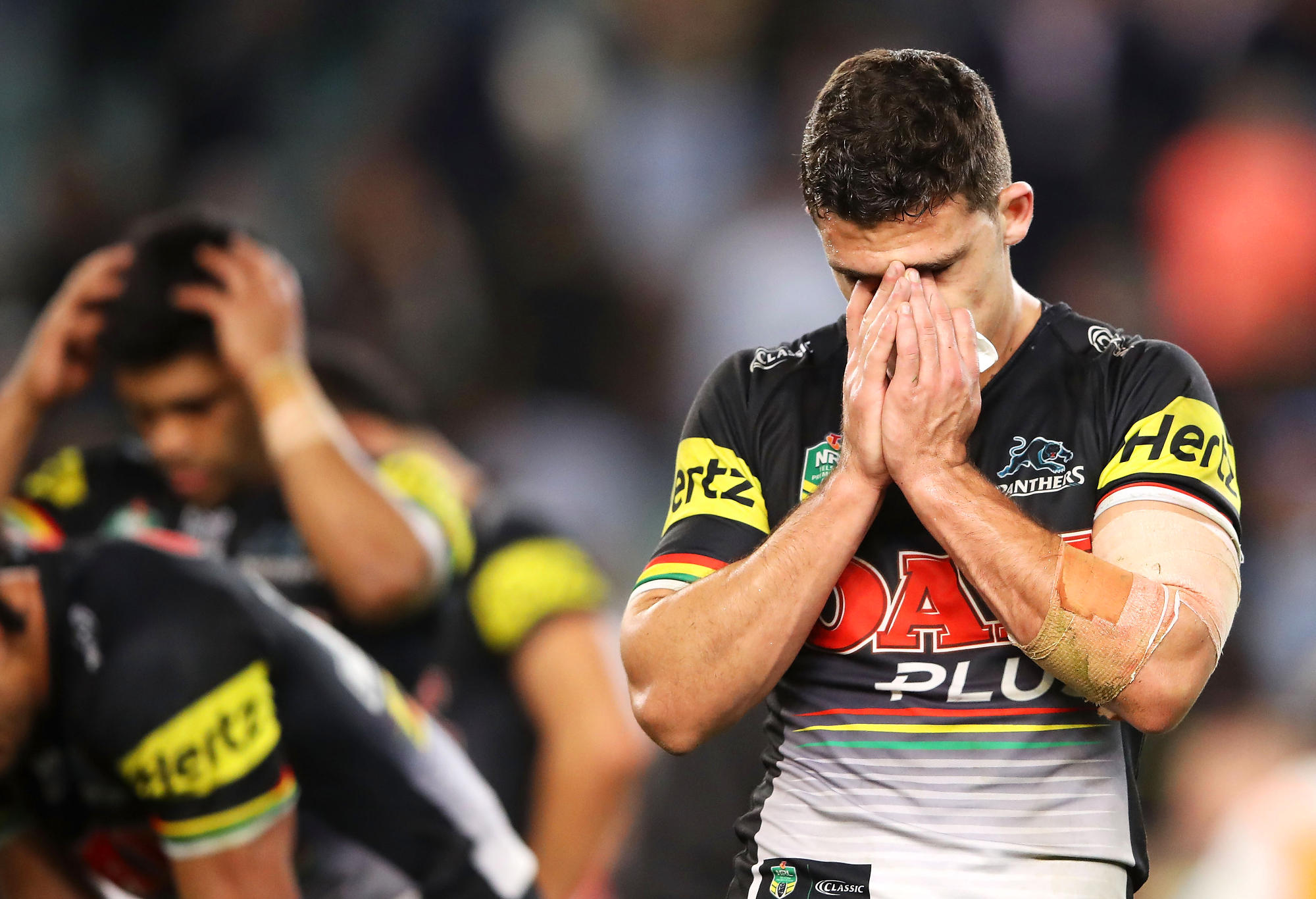
(Mark Kolbe/Getty Images)
Because while September is a wonderful, unpredictable time of year for our egg-ball codes, some records have stood the test of time for a reason.
And it’s down to a cliche as old as the record itself: defence wins premierships.
If you get 50 put on you, it’s a fair indicator that something isn’t right with your side’s D.
Every team is entitled to an off night, but when you ship a half-century to your opponents, it’s indicative of a deeper issue – even if, as in the Dragons’ case, you’ve got the decent excuse of missing a stack of stars due to Origin (although their opponents that night were actually down more troops because of rep footy).
Defence is about attitude, and if your players, even if they aren’t your frontline troops, don’t have enough pride in the jersey to stop getting that many tries scored on them, they’re just not going to trouble the real-deal sides when it matters.
Ultimately, though the Warriors, Dragons and Panthers were worthy finals combatants – with the latter two missing out last week by the slimmest of margins – there’s a reason they didn’t feature in the semis, let alone make it to the big dance.
To that end, who do you suppose the four most miserly sides were in regards to being scored on this season?
Yep, that’d be the quartet we ended up with atop the ladder and that went on to be our semi-finalists.
The Roosters were the stingiest, giving up only 361 points, although they were just barely ahead of the Storm on 363. Next were the Sharks (423), then the Rabbitohs (437).
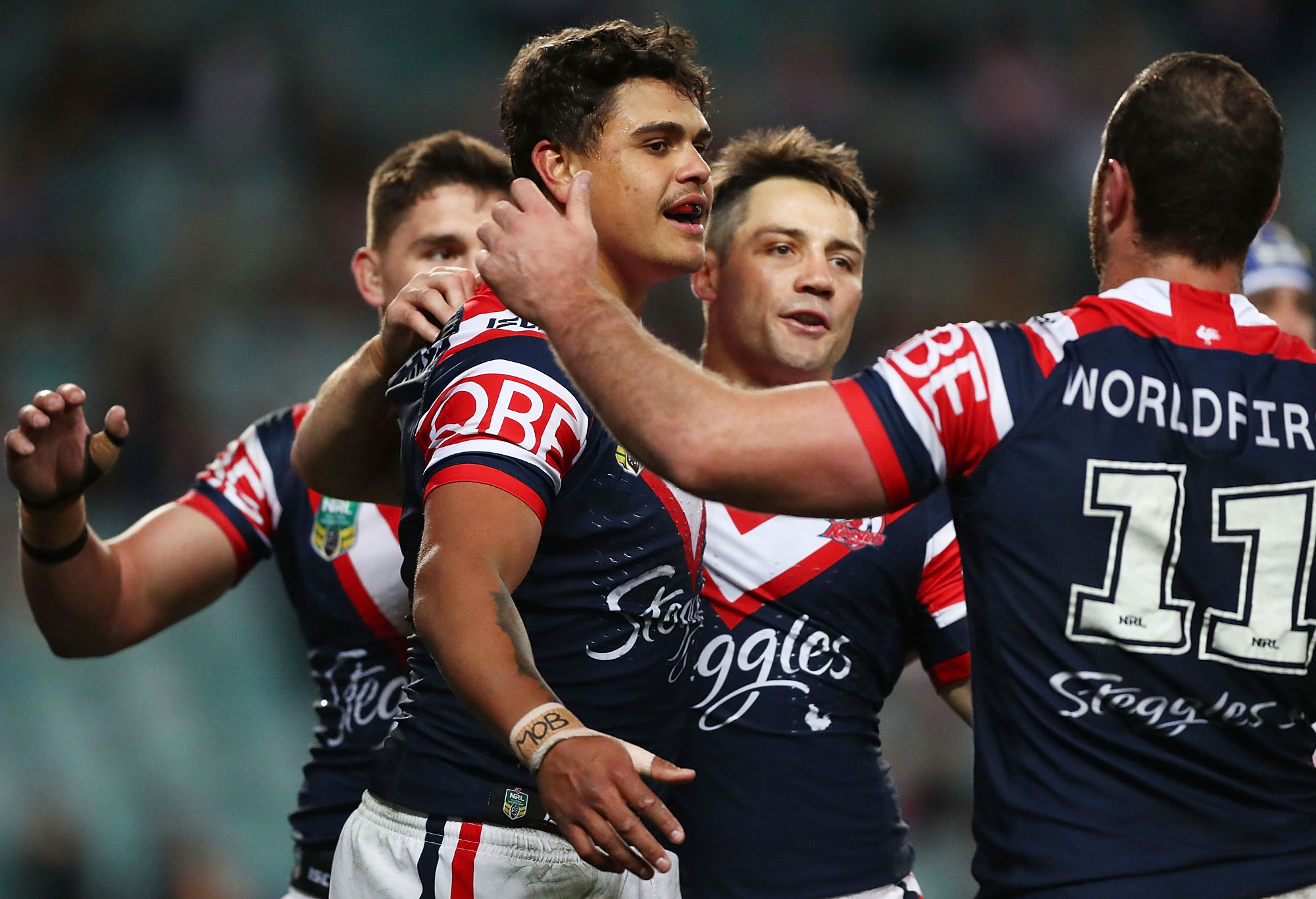
(Mark Metcalfe/Getty Images)
And while heading into this weekend it looked like it could have been pretty well any of those four who ended up taking a victory lap on 30 September, the Storm have something about them that suggests another longstanding (though nowhere near as ancient) rugby league record could be reset this year.
Brisbane were the last team to win consecutive grand finals – in 1997 and ’98 (unified competition be damned – if we discount Super League, we also have to ignore the ARL decider, and no-one’s wiping the Knights’ first premiership from the ledger on my watch).
The fact no club’s done it since is one of the game’s great points of pride and the oft-pointed to evidence that the salary cap works. That the most notorious salary cap cheats in recent history have made three grand finals in a row suggests this assertion is bulldust, but that’s a chat for another time.
Besides, it really does Bellamy a massive disservice to point to the salary cap as why his club have been so dominant for so long.
Having Cam Smith and Billy Slater on the roster helps, and while losing Cooper Cronk was obviously a blow, a young half by the name of Cam Munster means that there’s still a big three pulling the strings at AAMI Park.
But the real heroes at the Storm are their second-string players – honest toilers or unproven potential who Bellamy turns into rep stars – and that’s perhaps better evidence of the salary cap in effect.
Because the amount of talent to have left Melbourne over the years is staggering.
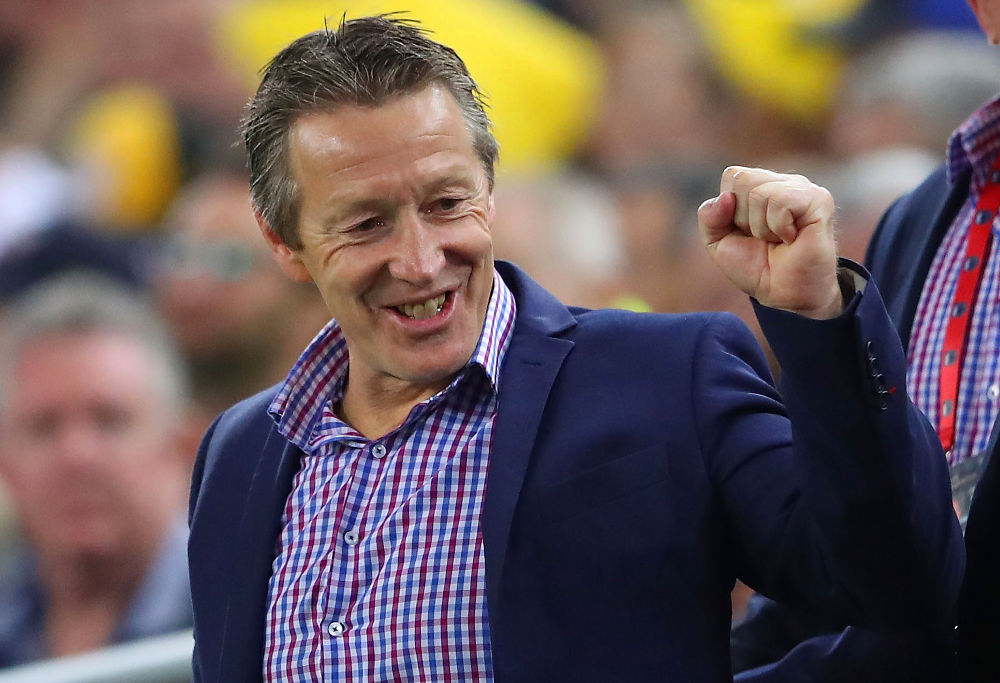
(Cameron Spencer/Getty Images)
Rep players Cooper Cronk, Marika Koroibete, Jordan McLean, Kevin Proctor, Tohu Harris and Slade Griffin are all gone from the teams that played in at least one of the last two grand finals, as are a handy pair by the names of Ben Hampton and Blake Green.
And the thing about all of them is that they turned up in the southern capital with no real reputation to speak of, and Bellamy made them so good that they were more or less forced to leave because the Storm just couldn’t compete with the offers they then got from other clubs.
Yet the master coach always seems to unearth another diamond.
Look, Slater’s done – maybe already – and Smith has, at most, a year left. We won’t see the Storm make another trio of consecutive grand finals for a while.
But their side this year have three of the best players in the comp running the show and 14 other guys ready to play their hearts out for the man whose work with them will likely see their value increase so much that the money on offer elsewhere will see them leave.
I’ll chuck in the massive caveat that no Billy Slater means no Provan-Summons Trophy – as we saw in 2016 – but the Storm’s premiership window is easing shut, and both Bellamy and his captain will be well aware of that fact.
So, provided they have the full complement of players on board, Melbourne will break a 20-year record and go back-to-back this year.
As for next season? Anyone’s guess, but I’ll tell you this much: if your team give up 50 at any point, it won’t be them.
































































































